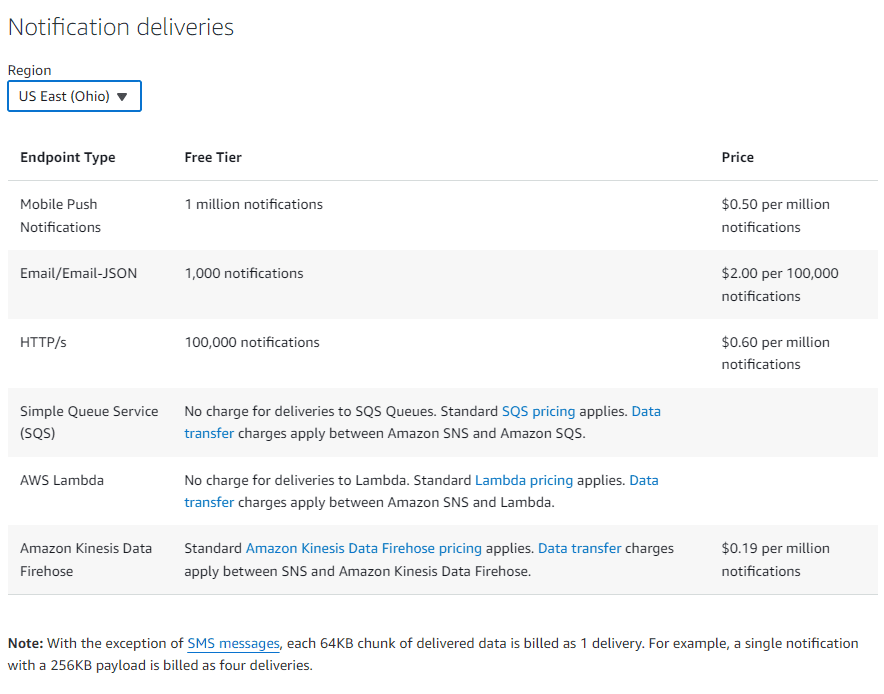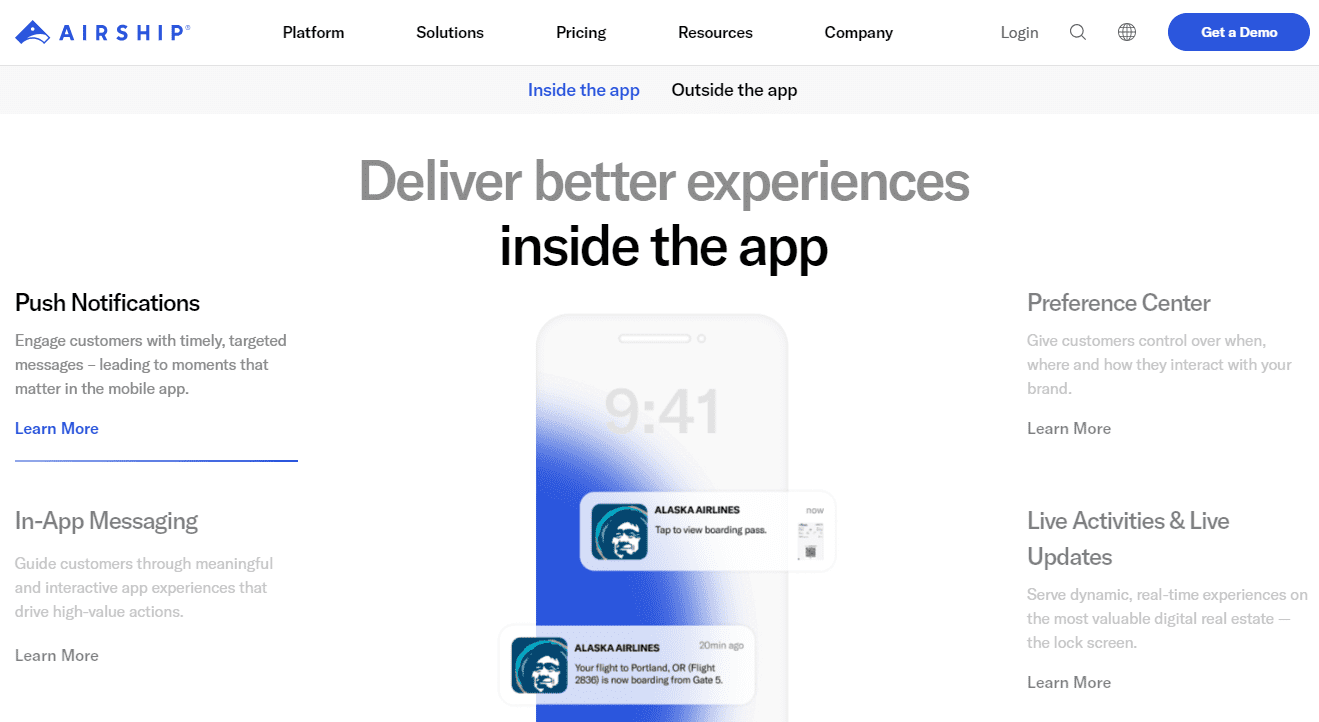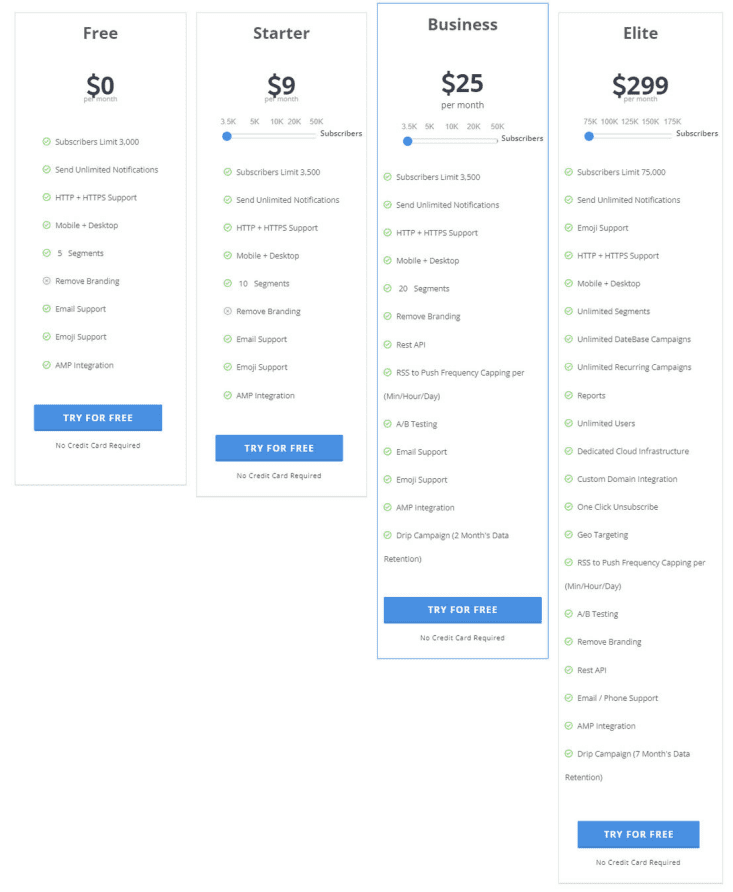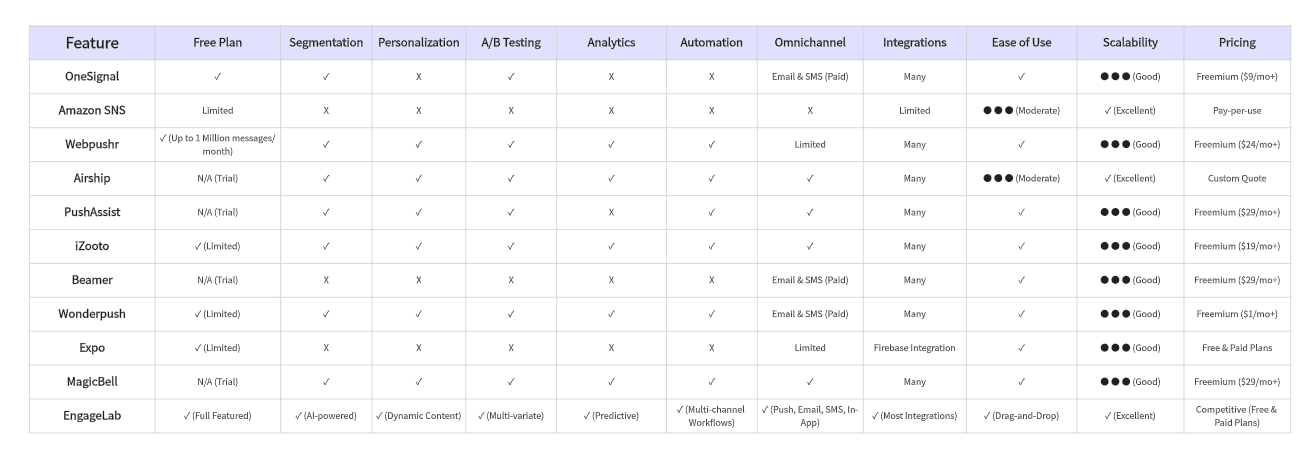Customer engagement platforms like OneSignal are vital for businesses to interact with their customers and keep them engaged. Even though OneSignal is a popular push notification tool, it is still possible that it might not work for you as well as you want it to.
In such a situation, you should know about reliable OneSignal alternatives to find the right customer engagement service provider.
Part 1: What Is OneSignal?
Knowing what exactly OneSignal is important before we further explore the pros and cons of this popular software.
At its core, OneSignal is a customer engagement platform. Its specialty is in sending push notifications through different channels, such as email, mobile, SMS, and in-app messages.
If you want further customization options, you can use OneSignal’s API integrations with channels like Webhooks.

Some of the other prominent features of OneSignal are:
- Multi-channel transactional and marketing communication
- Comprehensive analytics tools
- API Access
- In-app message builder
These features have OneSignal a popular push notification platform. Let’s discuss the pros and cons of this software in detail.
Pros
-
The quick and easy interface makes it easy for businesses to set up communications and engage with the audience through OneSignal push notifications.
-
OneSignal has significant automation features to set up automated notifications that the users can get upon performing some action.
-
API is a vital part of OneSignal as it provides significant control over connectivity and integration.
-
OneSignal has comprehensive targeting options to help businesses target a particular audience with personalized notifications based on their location, language, interests, and overall demographics.
-
OneSignal supports various types of notification types for different devices and channels, including web, mobile, and email.
Cons
-
OneSignal has a complicated setup process, so beginners might find the entire service difficult to use.
-
While OneSignal has wide-ranging API functionalities, its language option is limited to English.
-
The tool provides timely communications, but some users have reported delayed OneSignal push notifications about the service.
-
OneSignal React Native SDK is quite large in size.
-
The customer support system of OneSignal is slow and often does not respond to queries.
OneSignal Pricing
OneSignal pricing model has the following four different packages:

Part 2: Top 10 OneSignal Competitors & Alternatives
Now that you are familiar with OneSignal, you can understand why there is a need to explore different OneSignal competitors and alternatives.
Following are the top 10 customer engagement platforms that you can use in place of OneSignal:
1. Amazon Simple Notification Service (SNS)
AWS SNS is a reliable web service for developers, allowing them to send notification messages from the cloud to smartphones. It is also capable of sending images and videos to the target audience.

AWS SNS supports two types of push notifications:
- Topic-based push notifications that can be delivered to all subscribers.
- Device-based push notifications are sent to only those subscribers who are using your app and have enabled notifications from the settings.
Pros
- Daily analytics reports to ensure your messages are reaching your target audience.
- Quick and easy to configure if you are a developer or have technical skills.
- Great reputation in the market, especially due to Amazon's name.
Cons
- The lack of documentation makes it difficult for beginners to set up notifications.
- Understanding and resolving errors can be highly difficult.
- Supports limited types of push notifications.
Price
Amazon SNS has a variable pricing model that depends on many different factors. You can use its official calculator for accurate calculations.

2. Webpushr
As the name suggests, Webpushr is a platform that allows you to send web push notifications across all major browsers, such as Chrome, Firefox, and Opera. You can easily integrate the tool into your website via WordPress or an online WooCommerce store.

Moreover, this OneSignal alternative has a simple and user-friendly interface that you can use to target and personalize the push notifications properly.
Pros
- Quick and easy to set up.
- Impressive free plan to send web notifications to up to 10k subscribers.
- Excellent automatic and scheduled notification features.
Cons
- Highly limited integration options.
- If you have a large amount of subscribers, you’ll have to subscribe to a higher package that is quite expensive.
- Webpushr can only send web-based push notifications. You’ll have to buy or use another platform for other types of push notifications.
Price

3. Airship
Airship has made its mark among the push notification service providers and OneSignal competitors. It is compatible with all major platforms. So, you can use Airship to send notifications to your target audience on all platforms, specifically iOS, Web, Windows, and Android, from anywhere in the world.

AirShip also has other useful features like audience segmentation and A/B testing that enhance the quality and effectiveness of push notifications.
Pros
- AirShip has a reliable customer support team.
- Simple and user-friendly interface.
- Comprehensive documentation to make the configuration process quick and easy.
Cons
- Lack of a cost-effective package for small businesses.
- The interface of the analytics is complex and difficult to understand.
- Setting up AirShip can be time-consuming as you’ll have to follow many different steps in the documentation.
Price

4. PushAssist
PushAssist has a user-friendly interface similar to Google Analytics. It is a great push notification tool for people who already have some technical experience.

The scheduling and segmentation features of PushAssist make it a reliable option to send personalized push notifications to your target audience.
Pros
- You can register on PushAssist as a publisher partner and monetize your blog by showing ads.
- The free plan of PushAssist supports 3000 subscribers.
- PushAssist works effortlessly with a large number of subscribers as well.
Cons
- You cannot eliminate PushAssist’s branding in the free plan.
- PushAssist has expensive packages, considering the number of subscribers they support.
- Lack of customization options, especially in the free plan.
Price

5. iZooto
iZooto is a push notification service that offers a wide range of push notification types, such as real-time, recurring, and scheduled notifications. iZooto has a special focus on personalizing push notifications so that businesses can enhance engagement with their audience.

Pros
- Comprehensive customer data collection and analytics options to precisely target your audience.
- iZooto supports sending different types of notifications from a single dashboard.
- The basic price of iZooto is quite expensive, but its pricing model is scalable enough to support growing businesses.
Cons
- The basic package of iZooto costs $85 per month which is very expensive for a small and new business.
- Setting up iZooto requires some technical skills.
Price

6. Beamer
Beamer is a user-friendly push notification software. It has a large collection of notification templates you can use to announce important news, products, updates, offers, discounts, and much more. Overall, it is a reliable platform to send, manage, and analyze push notifications.

Pros
- Simple and easy-to-use interface.
- Reliable customer support system.
- Quick updates and fast notification deliveries.
Cons
- You can only send push notifications with Beamer.
- The packages of Beamer are quite expensive.
- Some users have reported bugs and errors that stop Beamer from working.
Price

7. Wonderpush
Wonderpush has features that are similar to most of the other push notification service providers. One unique feature of Wonderpush is that you can use it to create and manage eCommerce push notification campaigns. Therefore, online stores that have users who abandon their carts can use Wonderpush to automate eCommerce notifications.

Pros
- Multiple dashboards to manage multiple projects from the same platform.
- If you want a OneSignal alternative that has impressive e-commerce features, you’ll find Wonderpush to be a great tool.
- Flexible pricing model.
Cons
- Basic provides you access to the tool’s features for a limited number of subscribers.
- The pricing model can be hard to understand, especially if you have a growing business.
Price

8. Expo
If you are looking for a OneSignal competitor capable of sending notifications right from the platform to your audience’s inboxes on iOS and Android devices, then you should try out Expo.

It maximizes the chances of your message reaching your target audience. Since Expo is powered by Firebase, the differences between OneSignal and Firebase also affect these features.
Pros
- Quick and easy to implement.
- It analyzes the native Android and iOS devices to ensure maximum notification deliverability.
Cons
- Notification service is limited to apps that are built with Expo.
- Limited types of notifications.
Price

9. MagicBell
MagicBell is one of the OneSignal competitors that is meant to send push notifications to the various devices of the users. It is a quick, reliable, and affordable tool to enhance engagement with customers for businesses of all sizes.

Pros
- Real-time customer engagement with live notifications.
- Craft notifications meant for marketing campaigns or as reminders.
- User-friendly interface
Cons
- The MagicBell startup package costs $99 per month, which can be quite expensive for new businesses.
- Some technical knowledge is required to set up MagicBell.
Price

10. EngageLab
When it comes to choosing one of the best OneSignal alternatives, you should explore EngageLab. It is an all-in-one customer engagement platform with the capability of sending different types of push notifications, including on apps and the web.

Since EngageLab is a global platform, it ensures high deliverability to all of your users located anywhere in the world. You can even send more than 10 billion messages daily with EngageLab. It all depends on your requirements and the size of the brand.
Get Started For FreePros
- Comprehensive support for app push notifications and web push notifications.
- Easy-to-use integration system.
- 24/7 professional customer support system.
- Smart algorithm to maximize the impact of notifications.
Cons
- You have to pay a certain price to enjoy all the features of EngageLab.
Part 3: How to Choose the Best Onesignal Alternative: Comparison Charts
Now that you are familiar with OneSignal and its alternatives let’s compare all of them so you can choose the best platform:

Considering all of these features and benefits, you should try out EngageLab, as it is an all-in-one customer engagement platform that can fulfill your requirements for sending push notifications, SMS, emails, and much more.
Conclusion
Choosing a suitable push notification service provider is important to maximize engagement with your audience and grow your business. Well-established platforms like OneSignal are not always sufficient to fulfill this criterion, so you need to explore different OneSignal competitors to choose the one that fulfills your requirements.
Overall, if you are looking for an all-in-one customer engagement platform, EngageLab is at the top of the OneSignal alternatives list.
Get Started For FreeFAQs
-
1
Which Platforms Support Web Push Notifications?
All popular browsers support web push notifications across Android, iOS, Mac, and Windows devices. You can use tools from customer engagement platforms like OneSignal or EngageLab to send the notifications and engage with your audience. -
2
Why Should I Find an Onesignal Alternative?
You should find a suitable OneSignal alternative because it has a complex configuration process. Moreover, you get limited integration options in the basic plan. So, you can evaluate the pricing model, user-friendliness, automation features, segmentation features, and overall scalability of a customer engagement platform to choose the right alternative. -
3
What Is the Best Alternative to Onesignal?
EngageLab is the best alternative to OneSignal as it covers all major functions of customer engagement, including email, SMS, and push notifications.







